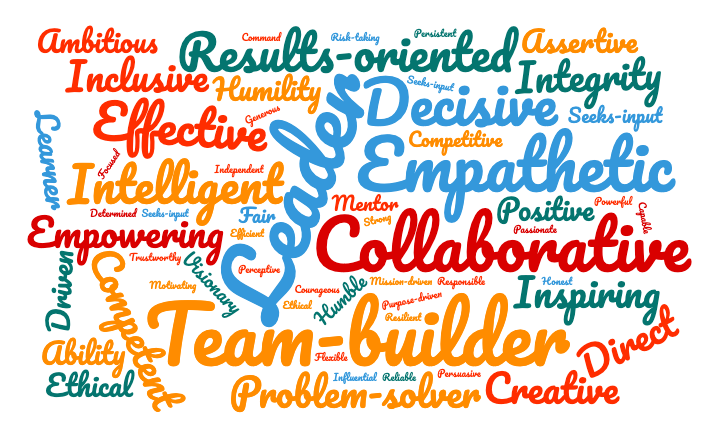Change Approved: Essential Skills

Have you noticed that there have been a number of articles about women in leadership lately? About how women leaders have epitomized decisive leadership and demonstrated critical leadership skills during the COVID-19 crisis? Many of these articles point various skills that we need all leaders to have in this day and age.
The problem is that historically, and even now, we are seeing these valuable skills described in ways that are make them appear squishy, diminutive, and optional add-ons to how we define leadership. This is #NotHelping. We need to dispense with old terminology (soft vs hard skills, feminine vs masculine traits) and we need to redefine leadership, truly effective leadership, as something that blends and leverages multiple “essential skills”. We need to emphasize that these skills can be learned and that with a growth mindset, intention, and practice, all of us (all genders) can be better, more effective leaders. And the world will be better for it.
Why does this matter? This is not a zero sum game, a competition where women win and men lose. This is not about emulating or ridiculing male leaders or fixing women. This is not a competition where you have to give up your identity (masculine or feminine or both or neither) to win.
This is an opportunity to up your game, improve your skills, make better decisions, innovate for all, lead for the greater good, and in the end make more impactful, profitable and/or sustainable companies, organizations, and governments.
Does changing how we talk about these skills matter? Yes, words matter. It is why we say fire fighters and police officers instead of firemen and policemen. It is why we staff the front desk, have flight attendants, and say “workers ahead” when there is construction.
By avoiding gendering skills, we remove a barrier to adoption. We make it easier for people to see the value of the approach and invite them to find ways to integrate inclusive and effective practices into their way of doing their job. It is not an additional thing for folks to do but rather a different way of doing the things you are already doing.
Leaders need a lot of skills: We need leaders who have high emotional intelligence, who have been taught design thinking, who have empathy and creative problem solving skills, that are collaborative and can build teams and foster psychological security, who value and reward diverse perspectives and make sure everyone’s voice is heard, who have excellent communication and critical thinking skills, who have the ability to make bold decisions in a VUCA (volatile, uncertain, complex, ambiguous) world with insufficient data, who are servant leaders who put their teams and mission in front of themselves, who are humble and generous, and who have a global mindset. Does any of that say we need to be feminine or masculine? No.
To excerpt Cami Anderson, contributor at ForbesWomen — Leaders need to be other-directed and emotionally intelligent, decisive and make tough calls, seek input and listen, build community & teams, negotiate on behalf of general welfare, unleash collective potential, manage risk, and provide vision.
To excerpt Avivah Wittenberg-Cox, contributor at Forbes — We need leaders who provide Truth, Decisiveness, Tech, Love. “These national leaders are case study sightings of leadership traits [everyone] may want to learn.”
To excerpt Tomas Chamorro-Premuzic and Cindy Gallop in Harvard Business Review — To be a good leader, “Don’t lean in when you’ve got nothing to lean in about. Know your own limitations. Motivate through transformation. Put your people ahead of yourself. Don’t command; empathize. Focus on elevating others. Be humble.”
Certainly we can argue, quite rightly in many cases, that men and women are socialized differently and the social norms we are held to are different. And this social context may give one gender an edge over the other in terms of practice, encouragement, or even necessity for certain skills. But what is important here — is that everyone is a slice of Swiss cheese — we all have holes. As leaders, it your job to fill those holes — by improving your skills and hiring a team that brings in strengths to offset areas that need work.
What we are seeing with the profiling of successful women leaders in crisis situations is that our prioritization of leadership traits needs to shift. Assertiveness is less important than persuasiveness. Decisiveness is key — but the decision-making is for the greater good not the individual. Instead of command, focusing on effective team building and collaboration goes a lot farther. Risk taking has to be data informed and coupled with risk mitigation. Individual confidence is less useful than self awareness. Empathy trumps ego.
So when we talk about the New Normal, let’s make it one where we expect all leaders to bring both empathy and decisiveness to the table. We can all learn from each other, but let’s make sure it goes in both directions. Seth Godin calls them real skills, Josh Bersin says power skills, but I recommend using essential skills to replace soft skills (and technical skills for hard skills). So instead of telling women they need to “man up” or telling men they need to get in touch with their “feminine side,” how about if we tell everyone that they need to become better leaders. Change Approved.
